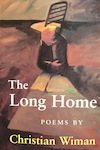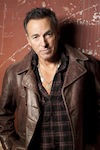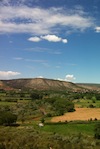 I listen for what I can affirm. I presume that people have treasured enthusiasms that are worthy of affirmation in some small way, and I try to find out what is it about the football game or even the legislation that seems to address a hope or a fear in that person. I start there and see where we can go. I do that in the classroom all the time, when I say something that leads a student to conclude that I’m not on their side. I try to provoke. I think everything I say I really believe, but I do try and direct it in such a way that it invites a sometimes passionate response, or at least that makes the person feel they must respond in order to be true to who they are. And once they do that, that’s not the end of the conversation. That’s the beginning of more questions.
I listen for what I can affirm. I presume that people have treasured enthusiasms that are worthy of affirmation in some small way, and I try to find out what is it about the football game or even the legislation that seems to address a hope or a fear in that person. I start there and see where we can go. I do that in the classroom all the time, when I say something that leads a student to conclude that I’m not on their side. I try to provoke. I think everything I say I really believe, but I do try and direct it in such a way that it invites a sometimes passionate response, or at least that makes the person feel they must respond in order to be true to who they are. And once they do that, that’s not the end of the conversation. That’s the beginning of more questions.
 When I was a child, I lived in fear. Now that I’m a man, I’m learning — slowly, it sometimes seems — how to act out of love; love for my friend, love for my neighbor, love for myself. Love grounded in particulars, freed from the burden of empty rhetoric. Love that honors the dignity and complexity of every person I meet.
When I was a child, I lived in fear. Now that I’m a man, I’m learning — slowly, it sometimes seems — how to act out of love; love for my friend, love for my neighbor, love for myself. Love grounded in particulars, freed from the burden of empty rhetoric. Love that honors the dignity and complexity of every person I meet.
 On this trip to Kentucky, I’m staying in a small cottage overlooking the pond at the back of Bethany Springs (the Thomas Merton Retreat Center), rather than at the monastery itself. Partly because of something I felt with renewed force when I finished reading Merton’s memoir last year. I am interested in neither a monastic life, nor an ascetic one. I’ll gladly stand with Jovinianus (and against St. Jerome, who identified this as an honest-to-God heresy, back in the year 393) in the declaration that abstinence from food is no better, in the eyes of God, than a thankful receiving of such. And you’ll find me much quicker these days to quote Mary Oliver’s “Wild Geese” than to agree with St Paul’s Greek-influenced dichotomy between spirit and flesh.
On this trip to Kentucky, I’m staying in a small cottage overlooking the pond at the back of Bethany Springs (the Thomas Merton Retreat Center), rather than at the monastery itself. Partly because of something I felt with renewed force when I finished reading Merton’s memoir last year. I am interested in neither a monastic life, nor an ascetic one. I’ll gladly stand with Jovinianus (and against St. Jerome, who identified this as an honest-to-God heresy, back in the year 393) in the declaration that abstinence from food is no better, in the eyes of God, than a thankful receiving of such. And you’ll find me much quicker these days to quote Mary Oliver’s “Wild Geese” than to agree with St Paul’s Greek-influenced dichotomy between spirit and flesh.
 To love another beyond purpose or reason — to love them for who they are, not because they take away one kind of loneliness or fill some hole in my life — that is what I strive for, what I hope for in my better moments. It is the kind of life I desire to lead.
To love another beyond purpose or reason — to love them for who they are, not because they take away one kind of loneliness or fill some hole in my life — that is what I strive for, what I hope for in my better moments. It is the kind of life I desire to lead. “We do not have to live as if we are alone.” One would not be hard pressed to interpret a large percentage of Bruce Springsteen’s extensive catalogue of songs over the last thirty-something years as attempts to communicate the same message. The role of an artist in our world today surely includes, among other things, the task of expanding our moral imagination . . .
“We do not have to live as if we are alone.” One would not be hard pressed to interpret a large percentage of Bruce Springsteen’s extensive catalogue of songs over the last thirty-something years as attempts to communicate the same message. The role of an artist in our world today surely includes, among other things, the task of expanding our moral imagination . . . I look forward every year now to the Glen Workshop for much the same reason, knowing that it will heal me in ways I didn’t even know I was broken. Knowing that I become more like the person I want to be after a week there. I know that the whole week will serve as a call to pay attention, that we will be offered continual reminders that maybe, just maybe, beauty will save the world.
I look forward every year now to the Glen Workshop for much the same reason, knowing that it will heal me in ways I didn’t even know I was broken. Knowing that I become more like the person I want to be after a week there. I know that the whole week will serve as a call to pay attention, that we will be offered continual reminders that maybe, just maybe, beauty will save the world. As I move farther and farther away from the way I believed as a child, is there anything left to hold onto? Is it possible to believe in anything so strongly again? In the song, Rob describes his grandfather’s faith and recounts a story his grandfather told him about “a train wreck in the ’60’s,” which brings up what theologians call theodicy, the problem of the existence of evil if there is a God.
As I move farther and farther away from the way I believed as a child, is there anything left to hold onto? Is it possible to believe in anything so strongly again? In the song, Rob describes his grandfather’s faith and recounts a story his grandfather told him about “a train wreck in the ’60’s,” which brings up what theologians call theodicy, the problem of the existence of evil if there is a God.













